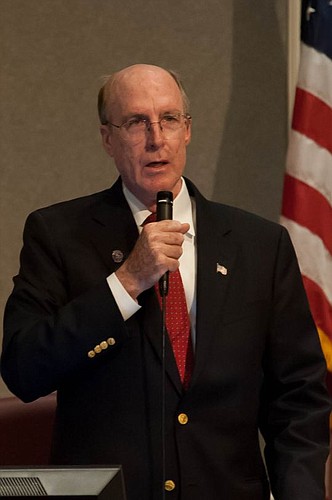
Back in November, a City Council committee dedicated to regulating transportation companies like Uber and Lyft hit the brakes.
The state legislative session began meeting in January.
There was hope — much like the year prior — the Legislature would solve myriad issues with ridesharing companies. Tallahassee had failed last year and the local committee wanted to press on, just in case the Legislature came up short again.
It came up short again. The two chambers couldn’t agree on whether local governments should have any say in local regulation.
So for at least another year, it will be up to local governments like Jacksonville that are dealing with the controversy to decide what’s best.
The Vehicles for Hire Committee has met monthly since the session started in January, but held off on moving forward with any major regulation. Instead, it kept an eye on the Legislature.
“They didn’t do anything, which is unfortunate,” said council member Matt Schellenberg, who chairs the committee.
The group meets again today for the first time since the session ended and Schellenberg said there needs to be progress.
That means reaching an agreement on background checks, vehicle inspections and insurance requirements for the technology-based ridesharing companies.
Local legislation that’s been parked more than a year requires at least state insurance minimums and notice to the city of that coverage, along with fines and possible vehicle seizure and impoundment if city laws aren’t followed.
Schellenberg favors some parts of the Florida House bill relating to insurance coverage, calling it a “blueprint on where the state is going.”
It’s expected next year the Senate will be more receptive to passing a regulation bill and Schellenberg said he’d like Jacksonville’s policies to mirror those as closely as possible.
Another part he’d like to see is drivers for Uber and Lyft having identifiable stickers or decals, which would help with enforcement efforts.
Council member Bill Gulliford said he still has questions and concerns on the whole matter and wanted to ensure background checks, vehicle inspections and insurance levels were enough locally. He said he expected the Legislature to fall short, and now that it has, it’s time to deal with the issue.
“I want to see fairness,” said Gulliford, referring to the longstanding backlash from taxi companies on the issue.
The city has stricter regulations on taxis, including requiring commercial insurance and medallions, which allow drivers to pick up fares.
Those medallions cost about $100 and are required to be renewed annually, although council passed a moratorium on collecting those fees until the Uber and Lyft issues were settled.
Council member John Crescimbeni advocated for that moratorium, which ends at the end of the month.
Like Gulliford, he expected the Legislature to fall short.
He’s been a staunch supporter of having a level playing field between the transportation networks and taxi companies and expects action now that it will be another year before anything happens at the state level.
“I’m tired of wasting time and spinning the wheels on this issue,” said Crescimbeni.
He plans today to bring up the expiring moratorium, several media articles about Uber and Lyft drivers breaking the law and the stalled local ordinance that would provide additional penalties for violations.
Crescimbeni said after talking to taxi company officials, they for now are in favor of giving the impoundment of rule violators a try. Still, Crescimbeni doesn’t think it will solve the problem.
Laws are being broken now, he said, with transportation network companies going out of their way to avoid following the rules and enforcement efforts being lax.
The Jacksonville Sheriff’s Office and the city’s Office of Public Parking have teamed on enforcement in the past. Police officers need probable cause, which can be difficult without cars being identified. And the public parking office can’t make vehicle stops.
(904) 356-2466